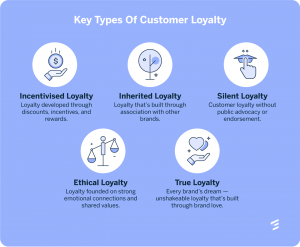Two-thirds (65%) of Australians have revealed inflation and the rising cost-of-living have made them leave brands they were previously loyal to in order to save money, according to new research by customer engagement platform, Emarsys.
Emarsys’ annual Customer Loyalty Index examines factors that impact Australian consumers loyalty towards brands and retailers. The Customer Loyalty Index 2022 surveyed over 11,000 consumers across five countries, including 2000 Australians, to find out how customer loyalty is shifting following a year of pandemic recovery that led to global inflation and increased cost of living around the world.
“In Australia, the ‘price-tag-takes-all’ attitude continues to be a dominating force behind consumers’ loyalty towards brands. For the second year in a row, the majority (52%) of Aussie consumers fall under Incentivised Loyalty, amongst the five loyalty types defined by the Loyalty Index:
- Incentivised Loyalty – loyalty developed through discounts, incentives and rewards
- Inherited Loyalty – loyalty that’s built through association with other brands
- Silent Loyalty – customer loyalty without public advocacy or endorsement
- Ethical Loyalty – loyalty founded on emotional connections and shared values
- True Loyalty – every brand’s dream, unshakeable loyalty that’s built through brand love.
“The research found nearly 70 per cent of consumers typically switch products if a cheaper option is available. Additionally, over half (55%) of Australians would lose loyalty to a brand if it increased its prices followed, by poor quality products (49%) and a difficult shopping experience (34%).”
According to the research, in a year of financial hardship, almost two-fifths (37%) of consumers now prioritise cost over brand loyalty and over one-fifth (21%) no longer feel they can afford to be loyal. The increase in inflation has caused 89 percent to be less loyal to department stores, subscription services and single-brand stores
“Alternatively, the three factors driving consumers to be ‘more loyal’ are discounts, incentives, and reward offerings (67%), excellent customer service (56%), and high-quality products (52%). Almost four in five (79%) are ‘loyal’ to certain retailers with clothing and fashion (63%), food (49%), and beauty and skin care (40%) being the top three industries respondents are most loyal towards. Three quarters (72%) of Australians have a favourite brand they love and trust, in addition to 52 per cent of consumers only buying from the brands they love and trust.”
“All five loyalty types can drive consumers to make a purchase from a brand, but the category retailers should be striving for is True Loyalty. A recession-proof business requires brands to amplify personalised communication with customers and accelerate the range of products offered,” says Kristyn Wallace, Regional Vice President, APJ at Emarsys.
“As inflation plays a large role in how consumers interact with brands and how they show their loyalty to their favourite retailers, marketers need to be more proactive than ever. It’s never been more crucial for brands to truly understand their customers: it’s not enough to be customer centric anymore, brands must be customer obsessed. To make themselves as recession-proof as possible, brands must know customers on a granular level and recognise which factors impact loyalty among different customer groups.
“The role of a marketer continues to evolve with technology-dominated responsibilities, and while this isn’t a bad thing for marketers, it places a greater emphasis on investing in the right marketing technologies in order to engage anywhere, personalise everywhere and reach anyone.
“As such, having the relevant information to build a personalised customer story in one platform, using artificial intelligence and the data you have available to build a clear customer profile will be key to unlocking customer behaviour. Having these insights will power the marketer to build a 1:1 relationship between the brand and customer and to attain the loyalty type that resonates most with the shopper,” Ms Wallace said.






